Azure
Latest

VW and Microsoft team up on cloud services for connected cars
VW's strategy for smarter cars extends beyond creating a single OS for its cars. It wants unified internet services, too. To that end, it's teaming up with Microsoft to build the Volkswagen Automotive Cloud and provide internet features that are consistent across models -- including when you're outside your car. While the two companies haven't delved into the exact features (it's still early going), they envision a scenario where you could resume listening to music when you enter your car, or hop on a conference call while you're commuting to the office. You could also expect tight connections to VW's We services, like car sharing.
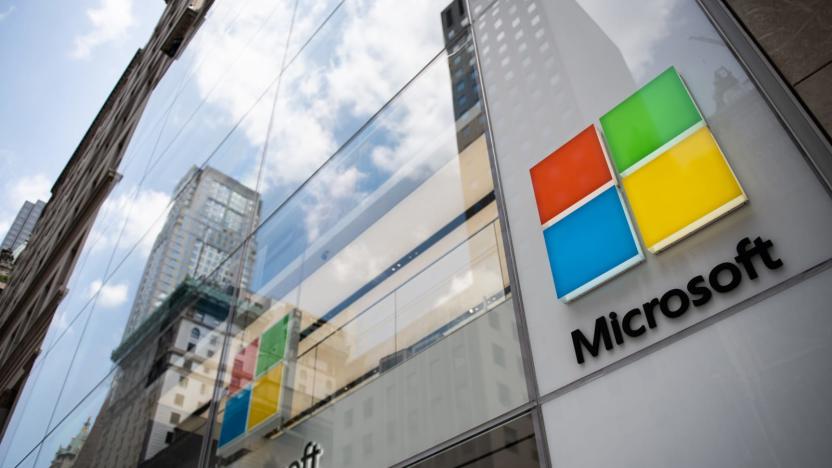
Microsoft's strong quarter was powered by the cloud, Surface and Xbox
It's honestly getting a bit tough to write about Microsoft's quarterly earnings without sounding like a broken record. For years, its booming cloud business has pushed revenues higher, and the same is true for the past fourth quarter. The company reports that its revenue is up 17 percent from last year, reaching $30.1 billion compared to just $25.6 billion. Mostly, that's due to the continued strength of its cloud segment, which is up 23 percent ($9.6 billion) compared to last year. Additionally, its More Personal Computing group, which includes Windows, Surface and Xbox, increased by 17 percent ($10.8 billion). Drilling down a bit, the Surface line continued to have a strong year with 25 percent revenue growth, while gaming revenues increased by a surprising 39 percent. The company points to third-party titles as a big reason for the growth. But really, it's probably all about Fortnite.
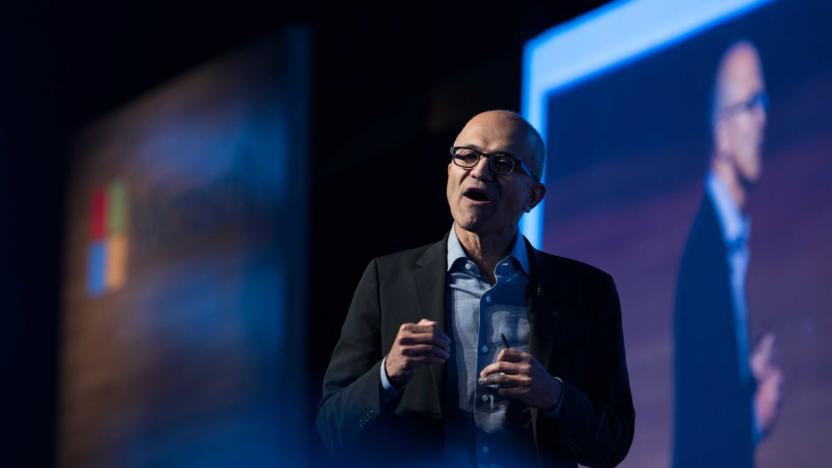
Microsoft employees criticize ICE contract amid recent reports
Add Microsoft to the list of companies whose government deals are provoking outrage both inside and outside their offices. The Redmond firm sparked a wave of criticism on social networks after users discovered a January blog post noting that the company's Azure cloud service team was "proud to support" US Immigration and Customs Enforcement, which has come under fire for policies that include separating children from parents. Microsoft briefly took down the post on June 18th in response, but the company has since described it as "a mistake" and replaced the content.

Watch Microsoft's Build day one keynote in under 15 minutes
If you were hoping to hear about the future of Windows at today's Microsoft Build keynote, well, we have some bad news. CEO Satya Nadella and a large cast of Microsoft spokespeople spend much of their time talking about the massive cloud computing power in Azure, which powers the company's AI and machine learning efforts. Of course, there were plenty of interesting tidbits -- like how the Kinect is being repurposed to help with development in both AI and machine learning. And there were a few consumer-focused announcements, as well -- if you've ever wanted to get your Android text messages on a Windows PC, you're in luck. Microsoft will have plenty more announcements tomorrow, but for now, check out what the company showed off on Build 2018, day one. Click here to catch up on the latest news from Microsoft Build 2018!
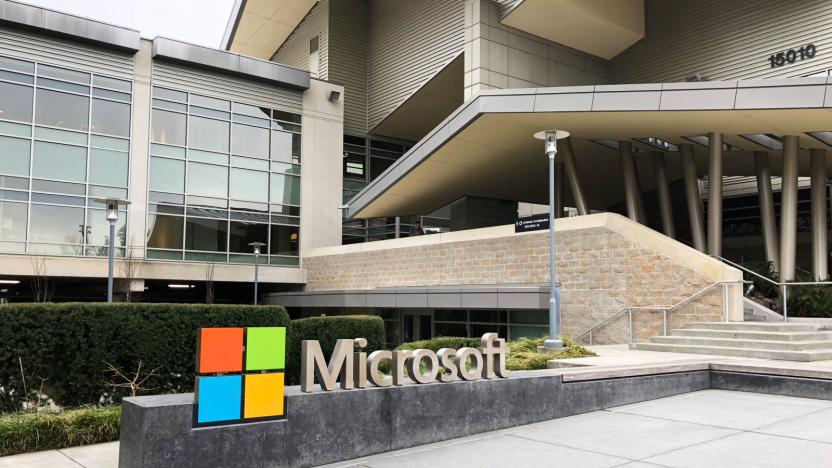
Microsoft Build 2018 by the numbers
During a marathon presentation at the annual Build developers conference, Microsoft executives laid out their vision of a smarter, more responsive IoT-driven future. The company is leveraging AI to better serve those with physical disabilities, repurposing the Kinect to boost its Azure development, and investing heavily in its developer community. Numbers because how else would we have realized the keynote went on for longer than Infinity War?
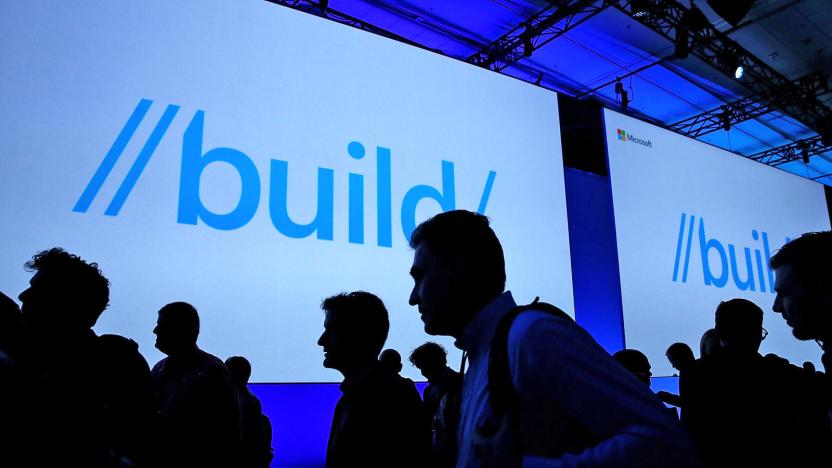
What to expect at Microsoft's Build 2018 conference
Fresh off of Windows 10's major April update, Microsoft is gearing up for its Build conference in Seattle on Monday. The annual event, like Google I/O (which starts just one day later), is a celebration of the company's developer community. That means you can expect plenty of technical details and (gasp) on-stage coding during the two keynotes, which will be led by Microsoft CEO Satya Nadella and operating systems head Joe Belfiore. But, of course, we'll also hear more about the company's broader goals for the next year, and we'll get a first look at new features for Windows, Office and the rest of its product line. Here's a glimpse of what we expect to see.
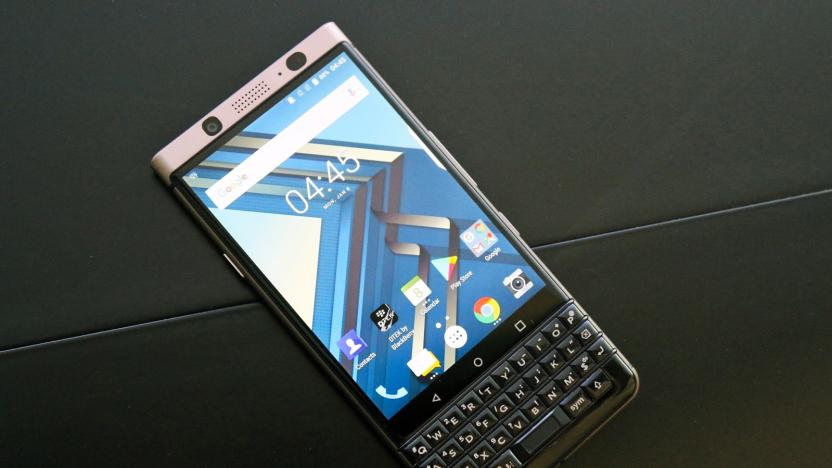
BlackBerry and Microsoft team up to make work phones more secure
BlackBerry and Microsoft may have been bitter foes before their smartphone dreams came crashing down, but they're becoming close allies now that they're focused on services. The two have unveiled a partnership that helps you seamlessly use Microsoft's Office 365-capable mobile apps from inside BlackBerry's more secure, contained Dynamics space. Ideally, this gives you the best of both worlds: you can work on that Excel file across devices without making your IT manager break into a cold sweat.

Microsoft's cloud business just keeps growing
If there's one major takeaway from Microsoft's earnings reports over the last few years, it's this: The cloud is everything for Microsoft. And, based on the company's financials for the second quarter of 2018, its success in the cloud doesn't appear to be slowing down anytime soon. Microsoft reported a 12 percent revenue jump for the period, reaching $28.9 billion up from $25.8 billion a year ago. And mostly, that growth was driven by the company's investments in cloud services.

Microsoft is helping developers make cloud-connected games
Microsoft has acquired PlayFab, a game development startup that offloads the burdens associated with cloud-connected gaming for developers, allowing them to focus squarely on creating games. The terms of the deal haven't been disclosed, but Microsoft will integrate PlayFab's tools into its Azure cloud service, presumably in a bid to take on Amazon Web Services, which launched a similar set of tools two years ago.

Microsoft built a hardware platform for real-time AI
In many cases, you want AI to work with info as it happens. That virtual assistant needs to respond within a few seconds at most, and a smart security camera needs to send an alert while intruders are still within sight. Microsoft knows this very well. It just unveiled its own hardware acceleration platform, Project Brainwave, that promises speedy, real-time AI in the cloud. Thanks to Intel's new Stratix 10 field programmable gate array (FPGA) chip, it can crunch a hefty 39.5 teraflops in machine learning tasks with less than 1 millisecond of latency, and without having to batch tasks together. It can handle complex AI tasks as they're received, in other words.
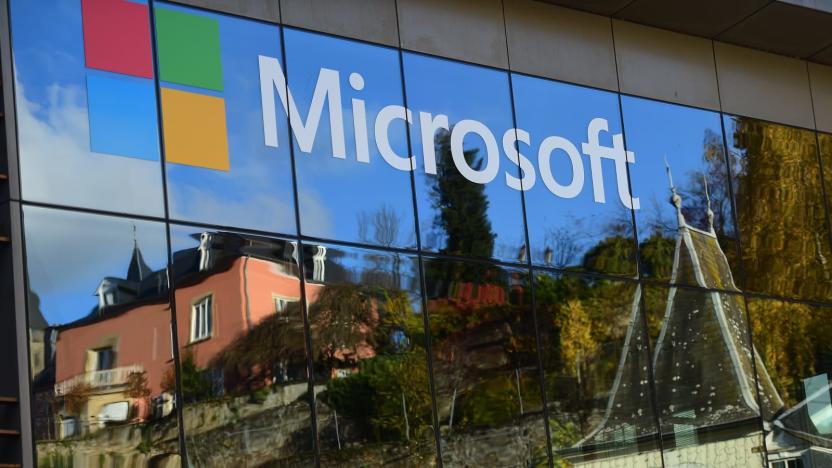
Microsoft and Intel want Bitcoin tech in your workplace
Blockchain is practically tailor-made for business, and not just because it's a cornerstone of Bitcoin. Its decentralized, speedy approach to secure transactions is more convenient for tracking cargo around the world or providing digital IDs to those who'd otherwise have nothing. And Microsoft knows it -- it's partnering with Intel to introduce a framework, Coco, that promises to make blockchain accessible to virtually any large business where it might help. It draws on Intel's Software Guard Extensions to provide blockchain's distributed tech with speed (up to 1,600 transactions per second) and security that scales to just about any kind of business with relative ease. You don't need to spend as much time crafting a custom blockchain system, or pay through the nose for computing power as your demands grow.
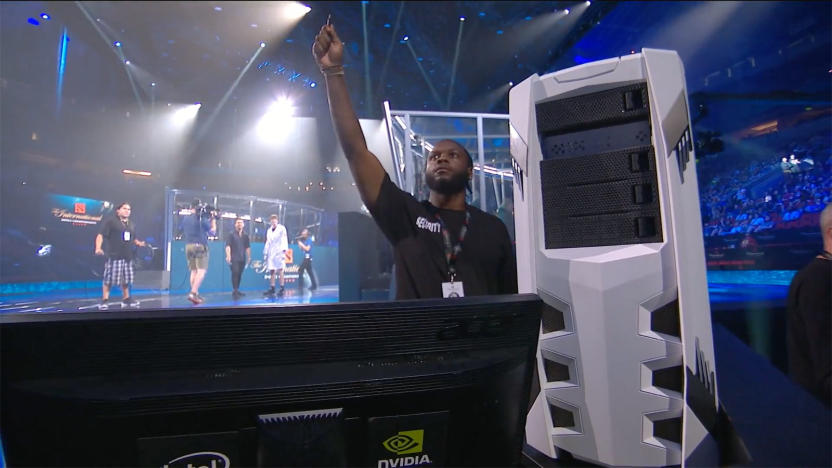
AI beats top 'Dota 2' players in one-on-one matches
Artificial intelligence isn't just good at playing Go -- it can also emerge victorious in the eSports arena. The Elon Musk-backed OpenAI team has developed a machine learning system that has beaten "many" of the best pro Dota 2 players in one-on-one matches, including star player Dendi during a live demonstration at The International. The trick wasn't to teach the AI how to play the game -- instead, it was to have the bot play many games against itself, and encourage ideal behavior as it learned the ropes over time.

BMW drivers can't escape work thanks to in-car Skype access
In the age of after-hours company emails, working lunches and constant connectivity, the one place you can escape is your car, right? Not so fast, easy rider. With help from Microsoft, BMW has installed Skype for Business in select vehicles running BMW iDrive, the company's infotainment and mobility system. Just a few months ago, BMW added Microsoft's Office 365 tools to BMW's iDrive, so certain Bimmers really are turning into (very) high-speed offices.
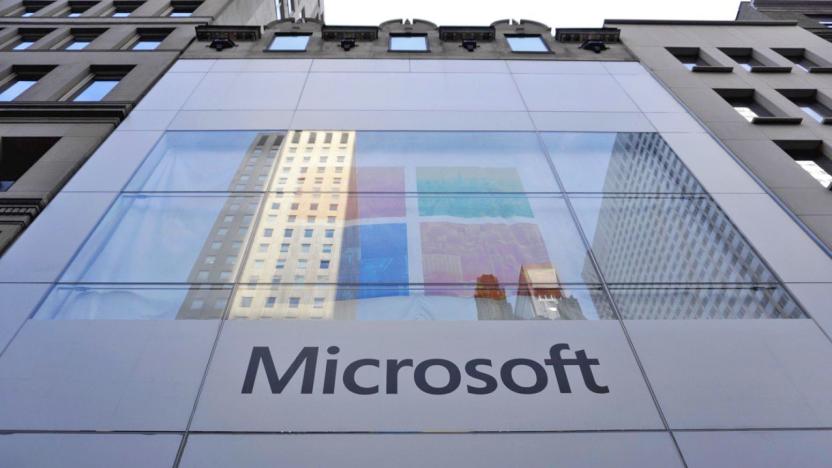
Microsoft to lay off 3,000 people as it tries to boost Azure
As expected, Microsoft has announced a radical reorganization of its sales business, with thousands of people expected to lose their jobs. The process will cut up to 3,000 jobs, mainly in the sales department -- that's less than 10 percent of Microsoft's total sales force, and roughly 75 percent of the cuts will be outside of the United States, CNBC reports. The reorganization effort is meant to help Microsoft focus on building up Azure, its cloud platform.
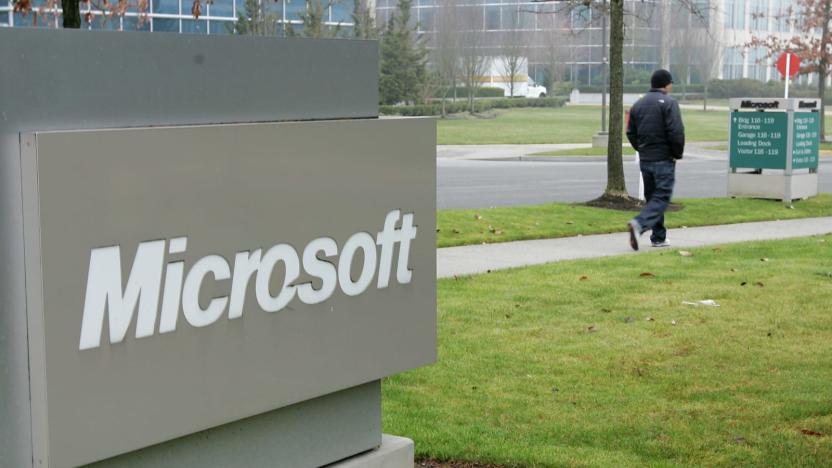
Microsoft's cloud focus could mean yet more layoffs
Microsoft is going through another reorganization that could result in "thousands" of layoffs, particularly to its sales force, according to TechCrunch, Bloomberg and others. The company is reportedly shifting teams around to emphasize Azure cloud sales, rather than boxed software, which is rapidly becoming a dying business. So far, there's no news on exactly which groups and regions will be affected.

Microsoft’s machine learning can predict injuries in sports
Microsoft is bringing its big-data knowledge to sports. Today, the company introduced its new Sports Performance Platform, an analytics system that aims to help teams track, improve and predict their players performance using machine learning and Surface technology. Created by Microsoft Garage, the group responsible for the tech giant's offbeat innovations, the project is designed to make coaches better understand player data and find ways to turn that into actionable insights. Microsoft's Sports Performance Platform can, for example, figure out when a player is at risk of injury, based on his or her most recent performance and recovery time.

The cloud and Office keep Microsoft afloat during PC slump
It's been clear for a while that a big part of Microsoft's future is ensconced in the cloud, and its latest (Q2 2017) earnings report just drives that point home. Wall Street types have been paying close attention to the company's Azure cloud services, and with good reason — Microsoft almost doubled its Azure revenue since this time last year, making up a considerable chunk of the Intelligent Cloud unit's 8 percent revenue bump.

Microsoft will release Visual Studio for the Mac (update: it's here)
If you needed any further proof that Microsoft is welcoming cross-platform development with open arms, you just got it. In a prematurely revealed blog post, the company has revealed that it's working on Visual Studio for Mac -- yes, one of the mainstays of the Windows world is headed Apple's way. This isn't really intended for Windows development (you'd need Boot Camp or a virtual machine to run your creations), but you can write Android, iOS and Mac apps (thanks to Xamarin) as well as server software through .NET Core. And importantly, Mac and Windows users can share projects. You won't have to convert your work just to make sure that everyone in your team can use it.

Microsoft partners with a legal weed startup
Microsoft is going into the legal marijuana business by teaming with a weed financing startup called "Kind," according to the New York Times. The two companies will create Azure-powered cloud apps that track plants from "seed to sale," helping legal dealers comply with laws. The decision to enter the trade was probably not taken lightly by Microsoft, as most corporations still won't touch it with a ten-foot bong. However, the software giant is based in Washington state, where it's perfectly legal to sell pot, and sees the potential for profits.

'Titanfall 2' doesn't ditch Microsoft's cloud; it builds on it
When the original Titanfall launched exclusively on the Xbox One, Windows and Xbox 360 in 2014, it took advantage of Microsoft's Azure cloud system, which allowed developers at Respawn to add AI teammates and enemies in a low-lag gaming environment. It also meant that some regions, such as South Africa, never saw the game, because Microsoft's dedicated servers simply didn't exist in the country. This all changes with Titanfall 2.









